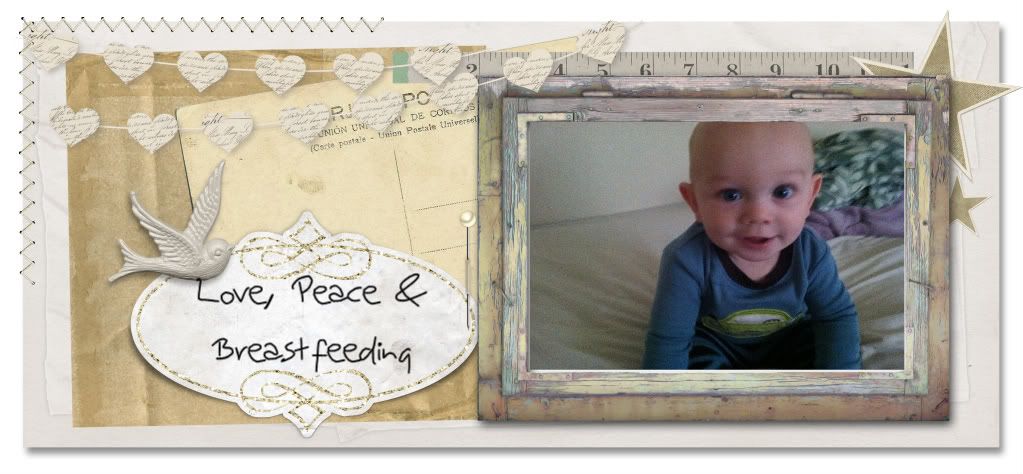There isn't any parenting magazine, book or forum where sleep isn't a hot topic. Let's face it- sleep deprivation is hard and most of us go through it to some degree in the first year of baby's life! So, not surprisingly, in mommy circles, the question is often, when will my baby sleep through the night and how do I survive in the meantime?
First, lets examine what we expect with a newborn. Babies have very tiny tummies. Also, if you are nursing, it's important to note that breastmilk digests in 90 minutes. This is a good thing though, I promise! It means that your milk is such a perfect food that baby can quickly digest it. When your baby is a newborn, you may feel they are attached to the boob 24/7, particularly during growth spurts. I highly recommend movies and Netflix for the first 6 weeks or so. Another thing that is happening here is the baby's frequent suckling is increasing your supply, also a worthwhile endeavor. Do not be tempted to put your newborn on a schedule. Feed on demand, even if you just nursed 15 minutes ago. Watch for early signs of hunger such as rooting or sucking on fingers. Crying is a late sign of hunger and many mothers find baby difficult to latch if he or she is very upset. Newborns wake up a lot, as they have no concept of time and they are usually genuinely hungry. Sleep training is not appropriate for a newborn. Remember this is a short time in your baby's life and things WILL get easier. You CAN do this in ways that do not involve Cry-It-Out. I wrote a post about the dangers of this method in The Ugly Side of Cry-It-Out.
Survival Tips
1. If you're nursing, I highly recommend co-sleeping. You can do this safely. I did have to sit up, position Dylan on the Boppy and latch him on for the first 10 weeks or so. After that we discovered and mastered side-lying nursing, which simply entails whipping out boob, feeding baby, and sleeping through the feed. Here is an excellent video tutorial. By this point the intestines are regulated and you won't need to change during the night. But sleeping with him cuddled against me did promote bonding. Babies who sleep next to their mother's, preferably skin-to-skin, nurse more frequently, gain weight more quickly, and this has a positive effect on supply. Mothers who breastfeed tend to sleep protectively of their newborn or baby. More information on the benefits of sleep sharing are listed here.
2. In the initial weeks, breastfed babies poop. A lot. Sometimes after every nursing, night and day. Don't fatigue yourself further by doing the middle of the night diaper changes. Have your partner change the baby and bring him or her to you to nurse. If you're bottle feeding, have your partner make a bottle and take turns feeding the baby.
3. Babywearing is awesome. Most babies will fall asleep in their carriers and you might even get something done while baby naps. I recommend a wrap like Moby or a ring sling like Comfy Joey for the newborn stage. You can even nurse in them! Soft structured carriers like the Beco Butterfly II (our personal favorite), Boba, or Ergo are great once they have decent head control.
4. Realize that you will be tired. My morning Starbucks run never impacted the baby. Relaxation exercises also help. Did I mention this is not a permanent state of being? By the time the kids are in college, you will sleep again.
Moving along. Your baby is now 3 months old, and still waking up at night. Everyone from the pediatrician to Aunt Mildred is asking if the baby is sleeping 12 hours a night yet. Here's the deal on that- some babies do, most do not. In fact sleeping 5 hours in a row is considered "sleeping through the night". Do not despair if you didn't luck out in the sleep department. Trying to get your baby to do something he or she is not ready for is an exercise in frustration for you both. Soon there will be teething, and some of your friends whose babies were awesome sleepers may begin waking at night again. It's not a contest. Sleep does, however, become more organized at this point. You'll probably notice more sleep in the night hours and more wakefulness during the day.
Survival Tips
1. Start a routine. Bath, stories, nurse, bed. I found that Dylan slept a long stretch from 6-10 pm. Then he'd nurse every 2 hours thereafter. Co-sleeping saved my a$$. I have felt very rested from about this point on.
2. Do not give your baby solid food in hopes they will sleep through the night. A 3 month old is not ready for solids, no health organization recommends this, and it doesn't work. Breast milk and formula are higher in calories and filling them up on solids will not help the situation. I understand your desperation though!
3. Sleep begats sleep. They will actually sleep better at night if they have napped sufficiently during the day. Sounds counterintuitive, yes, but it's really true.
4. Don't worry if your baby wants no part of self-soothing or being put down awake. If baby needs to nurse to sleep, fine. If he naps better in the swing, fine. Do what works. Again, I don't recommend sleep training, especially if it includes cry-it-out.
5. Don't forget the Starbucks! Seriously.

No comments:
Post a Comment